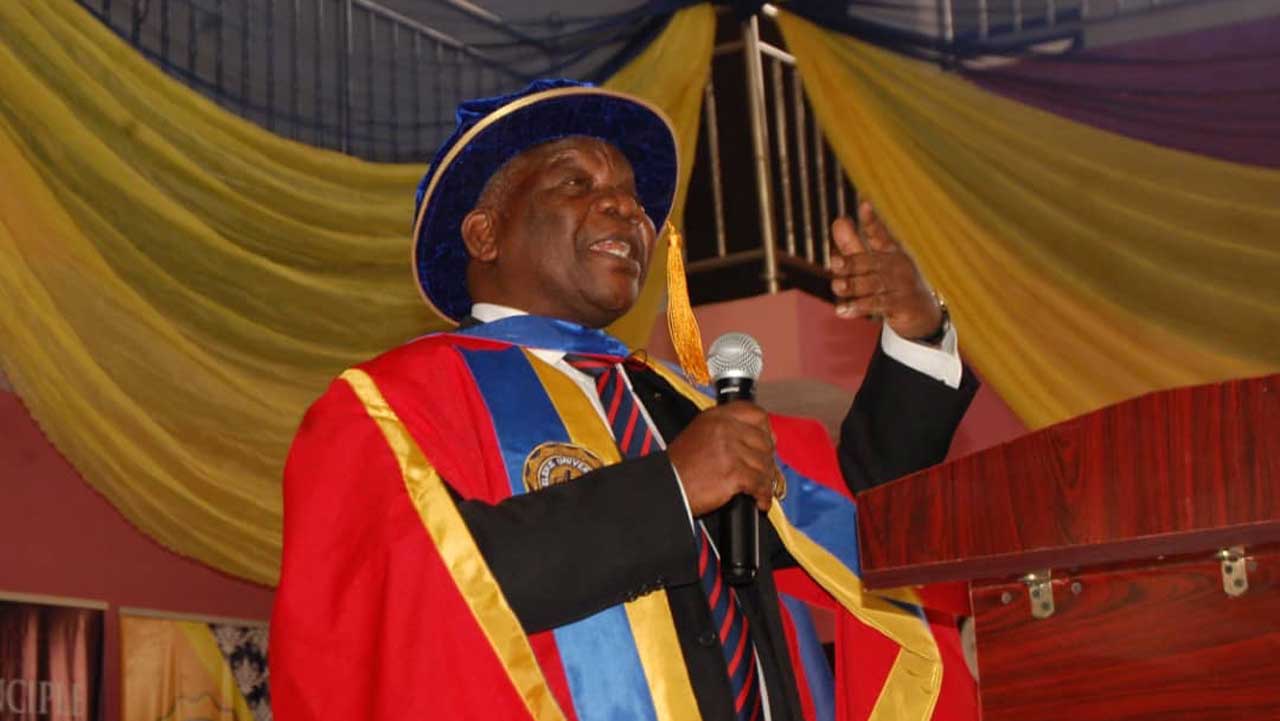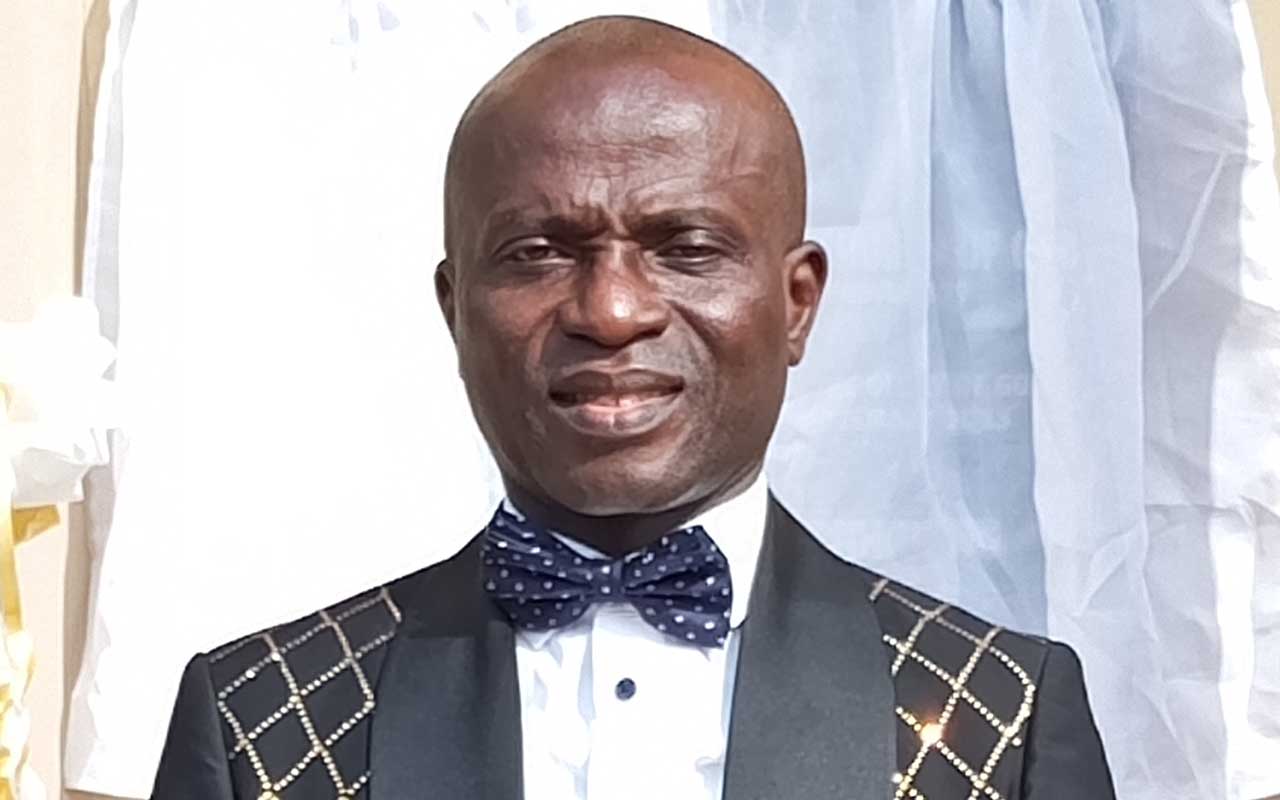
At the Convocation Ceremony of Adeleke University held on July 24, 2022, the University conferred degrees, diplomas and honorary degrees on students and distinguished personalities who had contributed immensely to the growth and development of Nigeria. One of the honorary degrees recipients is the iconic historian, educationist and accomplished diplomat, Emeritus Professor Michael Omolewa. In this interaction with GBENGA SALAU, Prof. Omolewa cherished the award, which according to him, is in recognition of his entire life of dedication to studying, teaching and promoting History and Education in the broad field of Humanities.
Congratulations sir! How do you feel about the award?
I firmly believe that the conferment on me of the much-coveted title of Doctor of Letters, honoris causa, D.Litt., perhaps the highest level of attainment in the field of Humanities, is a product of Divine intervention. Although it came to me as a pleasant surprise, I know that I have always been lucky to receive the recognition and honours that are normally beyond the level of my competence, ability and comprehension.
I felt exceedingly fulfilled by the award and immensely delighted that an institution has recognised my contribution, having spent all my adult life studying, teaching and promoting History and Education in the broad field of Humanities. I was glad that my award was in the field of Letters which I have always coveted for study. For example, I chose to read History at the secondary schools, Ibadan Grammar School and Ekiti Parapo College, Ido-Ekiti, mainly because of my love for the subject, and my excitement at knowing things of the past that would normally be hidden from me, and thus unknown to me. I have always loved to know about the past, the yesterday of life.
This award has also reminded me of how the Lord has helped me excel at every level of my study of History. You may wish to know that for the Higher School Certificate programme I attended the prestigious Christ’s School, Ado-Ekiti, where again I chose to read History. I had a distinction in the subject at the Cambridge Higher School Certificate examination and again a distinction in the subject at the Advanced Level examination conducted by the University of London.
I was admitted to read History at the University of Ibadan where, having led the class in the subject at the first year, I was selected as an exchange student to the university of London. I was thus at the School of Oriental and African Studies, the London School of Economics and Queen Mary’s College of the University of London for a term. On my return to conclude the undergraduate studies at the University of Ibadan, I received the Departmental Prize in History at the final year examination and the Sir James Robertson Prize in History at the Faculty of Arts.
Thereafter, I was employed at the Remo Secondary School, Sagamu, to teach History. After teaching History for three months, I was invited back to the University of Ibadan as postgraduate student in History, and I later proceeded to the Institute of Historical Research at the University of London for field work and supervision as postgraduate research student. I later returned to the University of Ibadan for the defence of my PhD thesis and was eventually awarded a PhD in European History.
Iwas particularly touched by the unanticipated commendation of the representative of the Executive Secretary of the National Universities Commission (NUC) to me and giving me additional recognition and accolades on the award. The presence of the representative of Aare Afe Babalola from Ado-Ekiti, and of the Vice Chancellor of Babcock University and colleagues from the institution’s School of Education and Humanity was particularly inspiring to me.
Why do you think that Adeleke University gave you the award?
I am not sure. It must have been the Holy Spirit who inspired Professor Solomon Adebola, the President/Vice-Chancellor of the University to suggest that I be given the award as he described it, “in recognition of (my contributions to national development as a scholar of international repute, a diplomat per excellence and a philanthropist with a rare milk of human kindness).” Perhaps, he has been impressed with my contribution to higher education. Dr Deji Adeleke, the Pro-Chancellor of the University has impacted lives, including mine, and has intervened in my life at a critical moment, many years ago. In any case, Adeleke University has been founded on the core values of the Adeleke dynasty to lift people up, serve others selflessly, and become a serubawon, terror to injustice, unfairness and manipulation. Adeleke University has helped to restore Ede to its former place of pride of place in nurturing educational development which began with the establishment of the Queen’s School in the town before it was moved to Ibadan.
The Redeemed Christian Church of God has also been Divinely inspired to choose Ede as its location of the University. The Timi of Ede has always attracted education to the town and been generous in providing the space for the institutions.
It was the spirit of giving back to the community which has always driven the Adeleke dynasty, and it is not surprising that the dynasty has joined the family of private universities which supplement and complement the various governments in providing access to higher education for those students who otherwise would have been denied the opportunity to learn in life. It is not surprising that the University picked me and Dr Bayo Olugbemi, a distinguished banker who enjoys investing in community development programmes.
The University orator gave reasons for the conferment of the degrees on us and I remember him describing me as the first and only West African to be elected President of the General Conference of the United Nations Educational Scientific and Cultural Organisation (UNESCO), and former Ambassador and Permanent Delegate of Nigeria to UNESCO among other considerations.
How did you then find yourself in the field of Education, having spent all your academic life in the Department of History and the Faculty of Arts?
It was a Divine arrangement. The only opening for employment that was immediately available to me, on the completion of my thesis, was at the Department of Adult Education, University of Ibadan where I was appointed assistant lecturer in the History of Adult Education in Britain. With the encouragement and support of Professor S H O Tomori, my Head of the Department, I succeeded in obtaining the award of a postdoctoral research Commonwealth Fellowship to be spent at King’s College, University of London. While in London, I was extremely lucky to have access to some unknown archives located in London which contained invaluable documents related to the hitherto little-known field of the History of Education, with focus on adult education. My promotion was thereafter rapid, and just about ten years after the completion of my doctoral programme, I was promoted Professor of the History of Education at the University of Ibadan.
Apart from teaching History, what else have you done?
While serving as Professor, I have been external examiner to universities in Nigeria, southern Africa and Europe. I have also assisted many of the universities with the assessment of candidates to the level of professor in addition to serving on many editorial boards of journals including the Journal of African American History, the International Review of Education, and the International Journal of the History of Education.
Soon after my promotion to the position of Professor, I was elected the 11th Dean of the Faculty of Education at the University of Ibadan. I later served as Chairman of the Committee of Deans of Education of Nigerian Universities, Head of his Department of Adult Education, and later Master of Mellanby Hall at the University of Ibadan, remaining committed to the advancement of his discipline of the History of Education. I was appointed by the President Olusegun Obasanjo as Ambassador and Permanent Delegate of Nigeria to the United Nations Educational, Scientific and Cultural Organisation (UNESCO) on the return of Nigeria to democratic rule. While at UNESCO, I became the first West African to be elected President of the General Conference of UNESCO. I was Member of the Executive of the International Standing Conference of the History of Education and Deputy Chairman of the Governing Council of the Commonwealth of Learning based in Vancouver in Canada.
On my return from the national service at UNESCO to the University of Ibadan, I was honoured with the appointment as Emeritus Professor. In the same year, I was also invited to Babcock University to teach courses in History and International Studies. I have served on Presidential and Ministerial Committees dealing with aspects of education, the most recent ones being Chairman of the Ministerial Retreat Team on Education, Chairman of the Visitation Team to Alvan Ikoku College of Education and Chairman of the White Paper Committee on the Report of Visitation Panels to Federal Colleges of Education.
I pray for the opportunity and privilege to continue to serve God and humanity until the very end.






